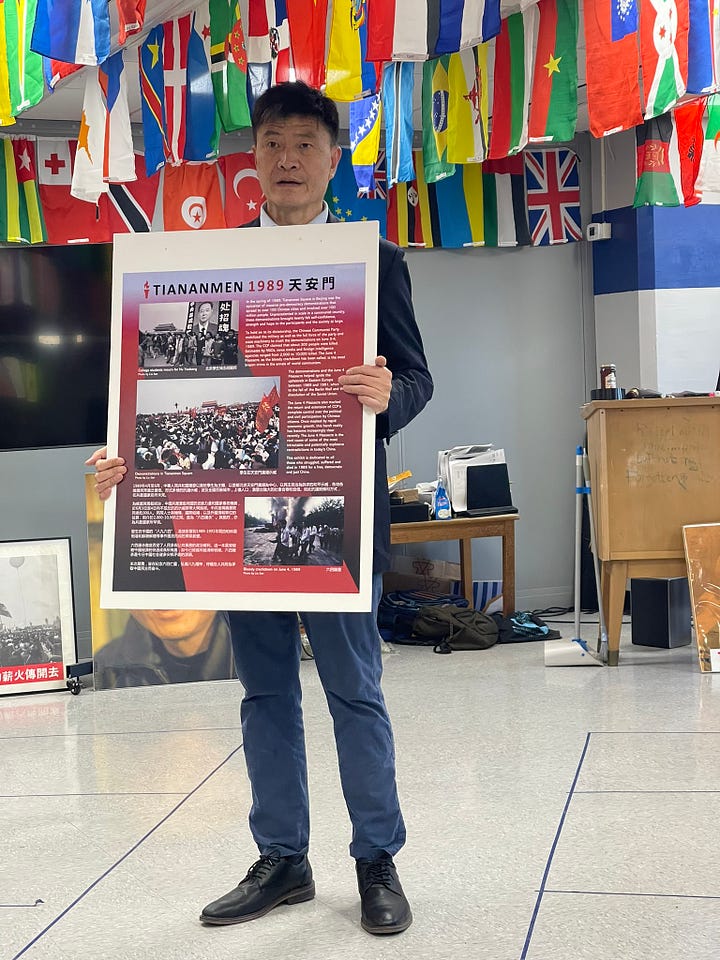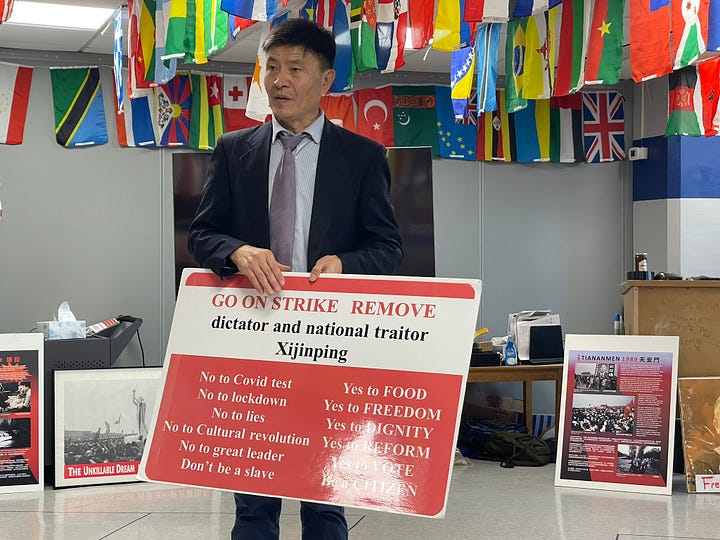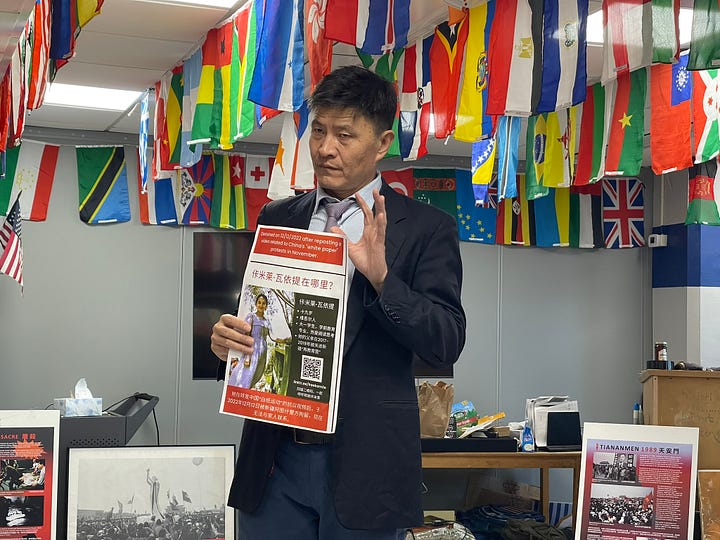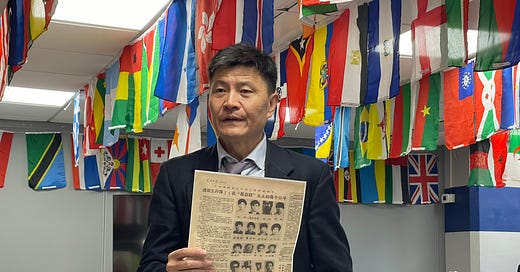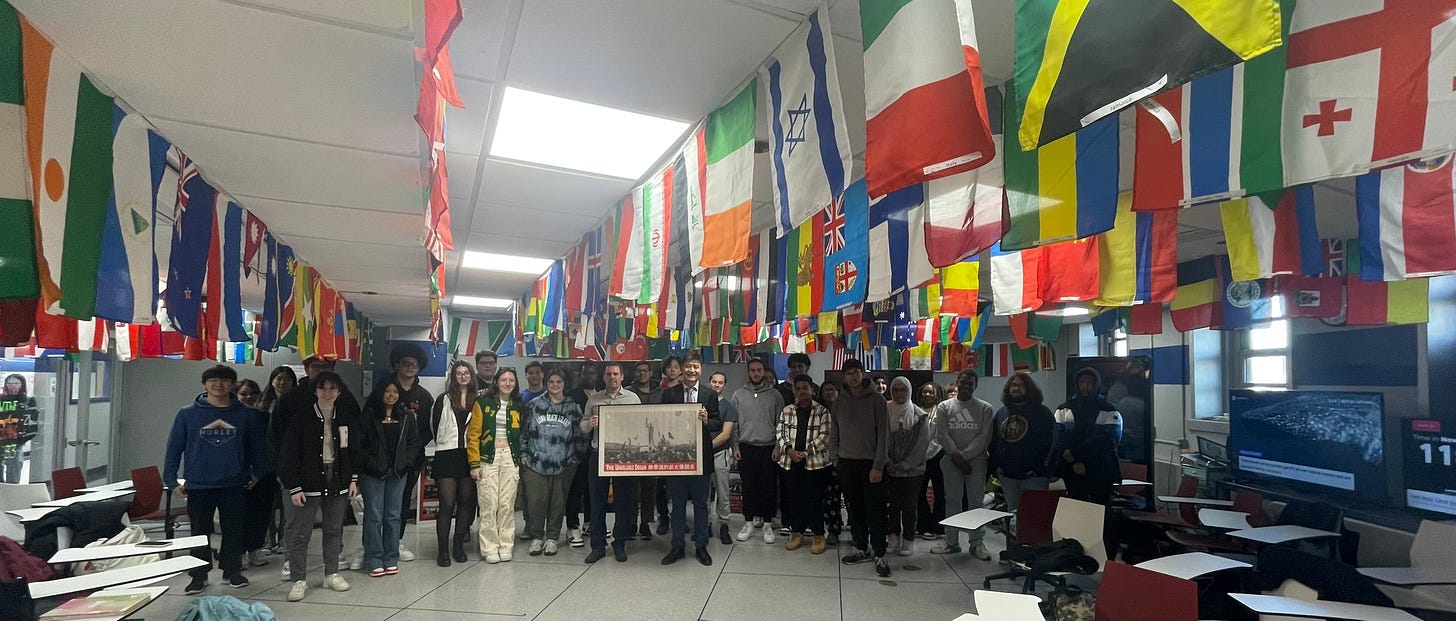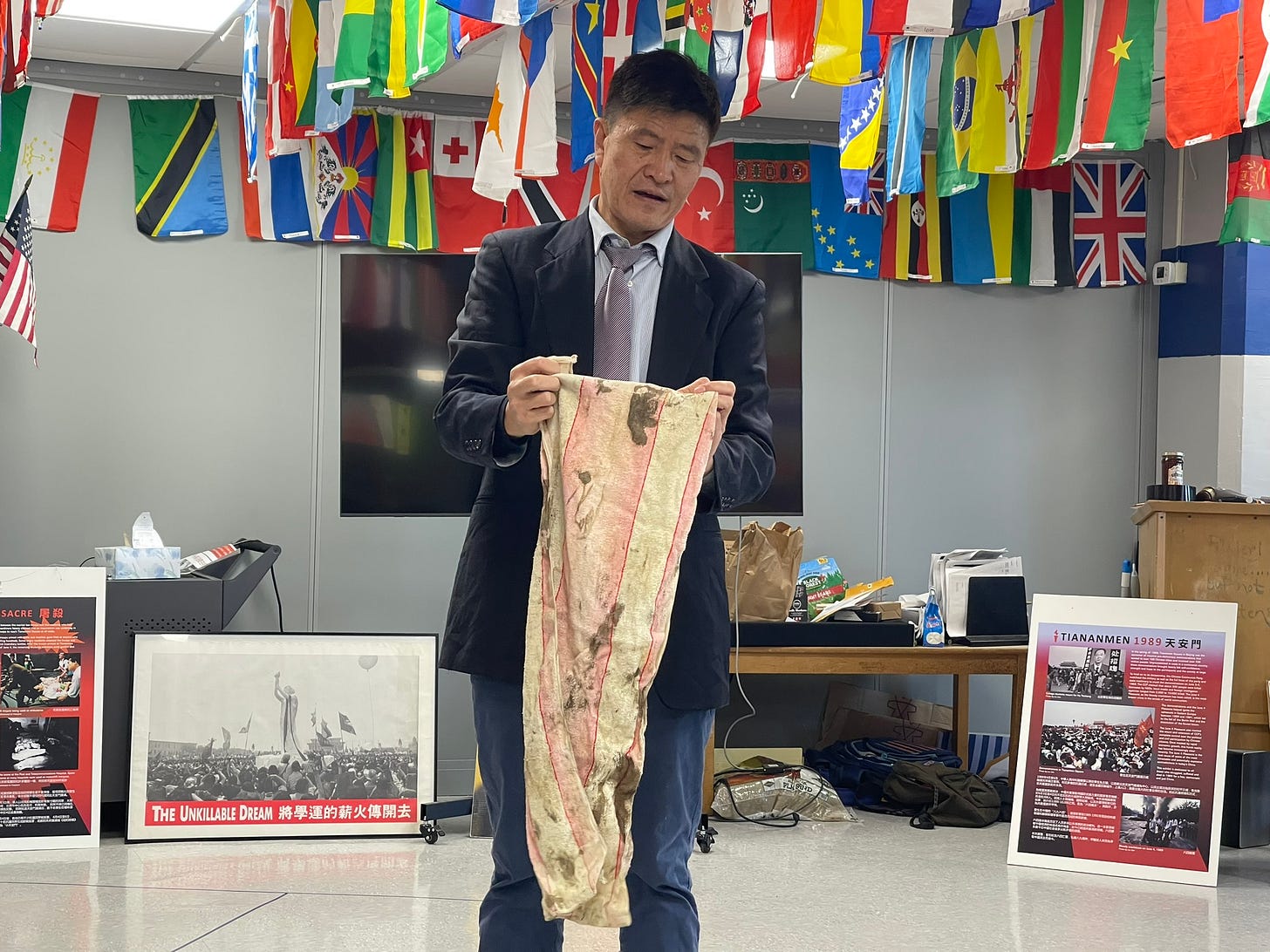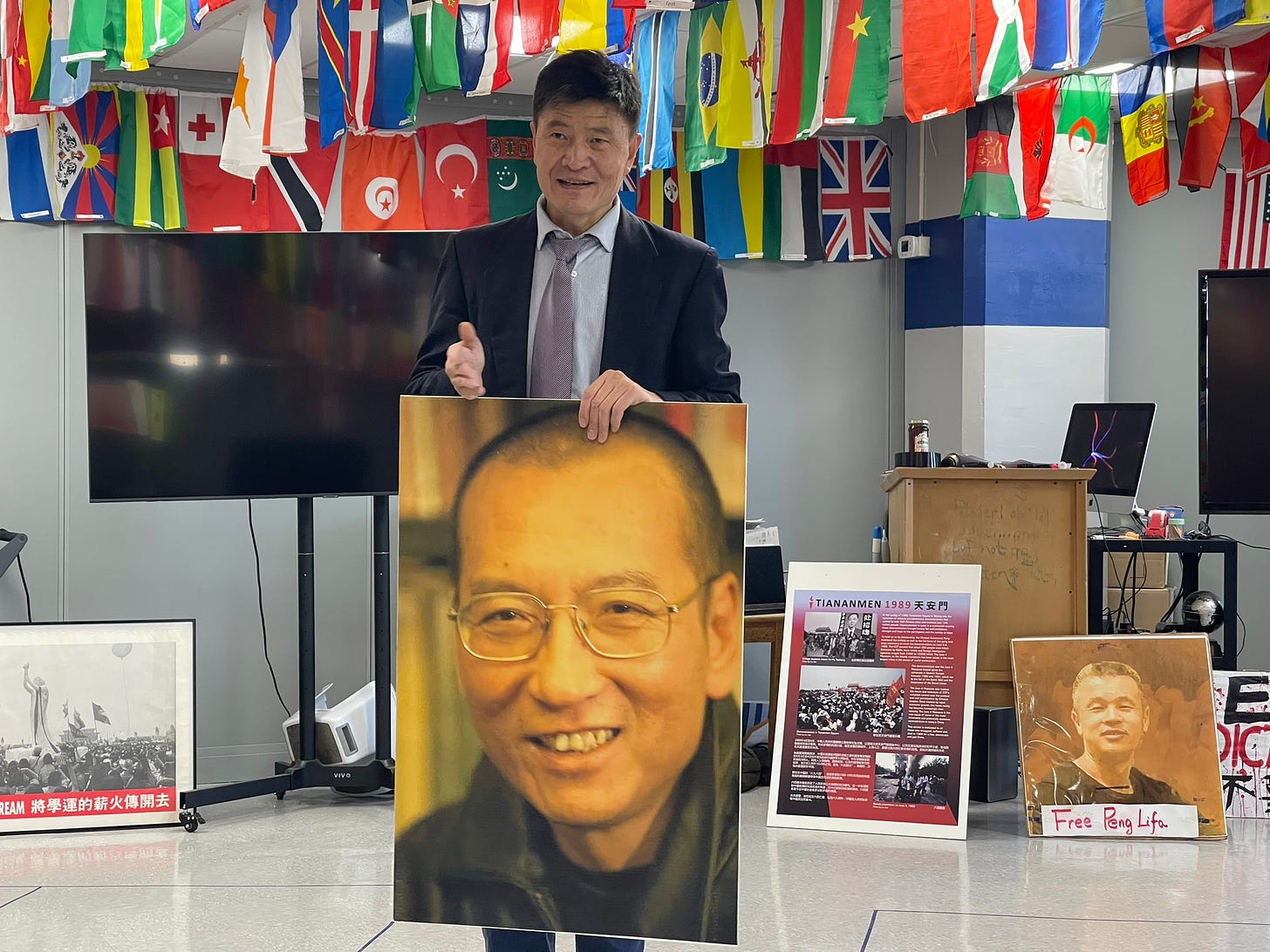On Friday, December 15th, 2023, HRIC Executive Director Fengsuo Zhou held an in-person presentation at a high school AP class in Staten Island, with around 30 in-person attendees and 120 remote viewers from across the country. Sean Jacobsen, the instructor of the AP Comparative Government class at the Michael J. Petrides School, invited Director Zhou to speak as part of the Today in International Politics: Speaker Series that he created to help students learn directly from experts in the field of international politics. This event was also part of HRIC’s larger efforts towards engaging with the youth community and building public interest in human rights and international policy. Director Zhou led the presentation, answering students’ questions and sharing his own journey as a student organizer during the Tiananmen Square protests.

Among the various items and protest ephemera he shared with the students, Director Zhou highlighted a blood-stained towel from the 1989 Tiananmen Square Massacre. He explained how it was utilized to wrap around a student’s bullet wound when the Chinese government fired against protestors. Many of these artifacts and materials are also displayed at the June 4th Memorial Museum, located at 894 6th Ave, 4th Fl, New York, NY.
The group also discussed Liu Xiaobo, famous Chinese human rights activist and recipient of the Nobel Peace Prize who died in July 2017. Liu was a visiting scholar at Columbia University before he returned to China to participate in the Tiananmen Square Protests. He was arrested in 2008 and sentenced to 11 years in prison for his role as the main drafter of Charter 08, the blueprint for a constitutional democracy in China. None of the students had ever heard of Liu Xiaobo, even though he was the most important figure in China’s movement for democracy and a Nobel Peace Laureate. Director Zhou underscored how Liu’s death and funeral was heavily censored in China and much of his legacy has been erased from Chinese history and media. This erasure is why it is more crucial than ever to preserve and share history.
Director Zhou also shared the story of Kamile Wayit, a Uyghur university student who was arrested for sharing information about the White Paper Protests on social media. The White Paper Protests were public demonstrations held in November 2022 against the Chinese government's strict COVID-19 measures and the dangers they posed for citizens. The movement was sparked after an apartment fire in Urumqi, a region predominantly occupied by Uyghur citizens, killed more than ten people due to the zero-COVID policy that prevented civilians from exiting their homes. Despite international advocacy, Wayit was sentenced to three years in prison and is still held in Kashgar Mush Women’s Prison today.
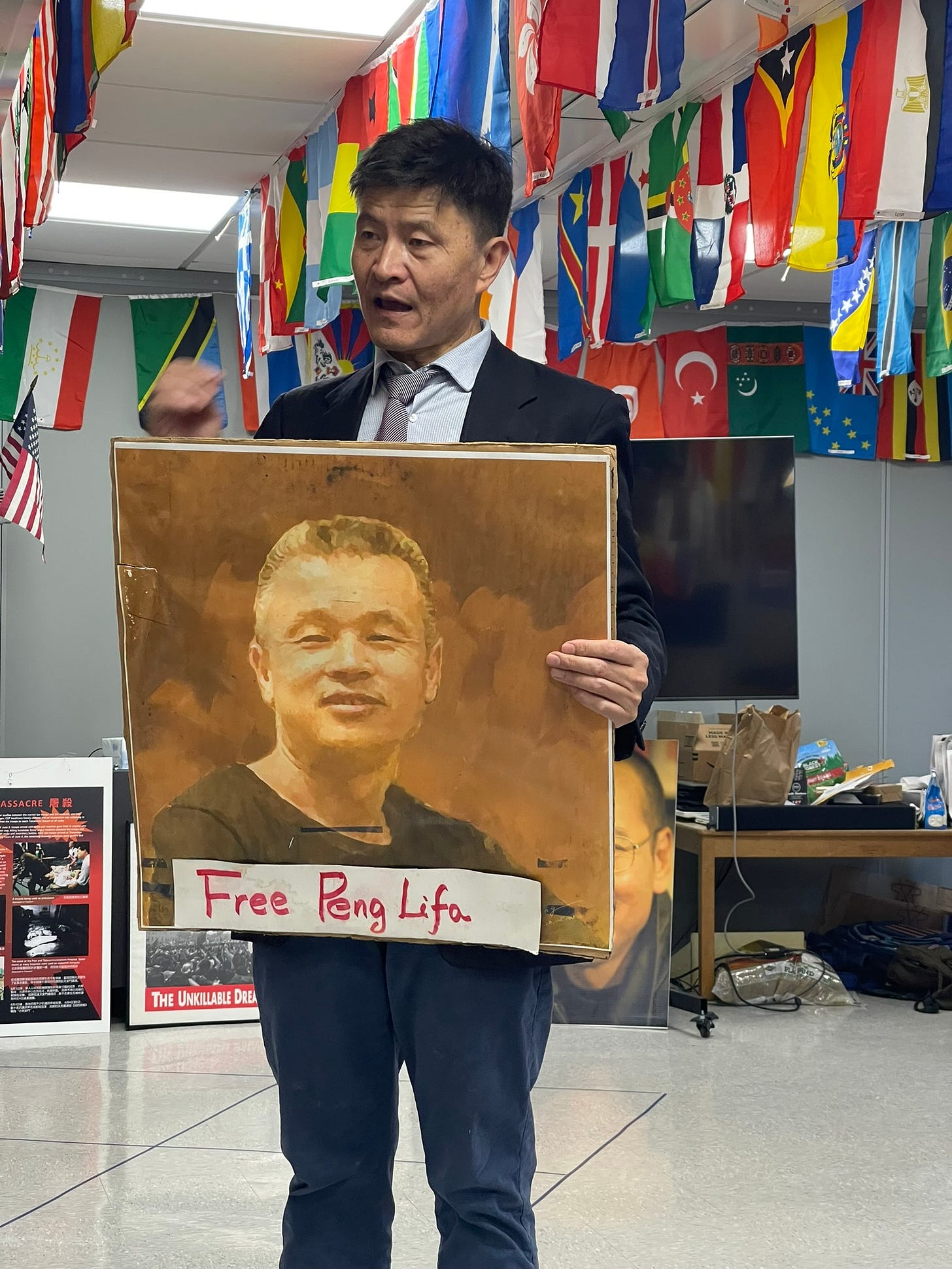
One student was curious about how surveillance and control had changed over time, mentioning the intense security they encountered on a recent visit to Tiananmen Square. Director Zhou responded that before 1989, anyone could just walk into the square. Today, surveillance has intensified with the advent of more complex technologies. Furthermore, the threat of CCP surveillance and control extends beyond China’s borders, from debts accrued through the Belt and Road Initiative to personal information leaked from major websites through CCP-affiliated hacking.
Director Zhou wrapped the presentation by taking a picture with the students and emphasizing the importance of young people in the fight for human rights and political expression. One student remarked that the Statue of Democracy, constructed during the height of the Tiananmen protests and later destroyed by the government, bore a remarkable resemblance to the Statue of Liberty. Through cross-national solidarity and expression, we may move towards a more just and free society.
